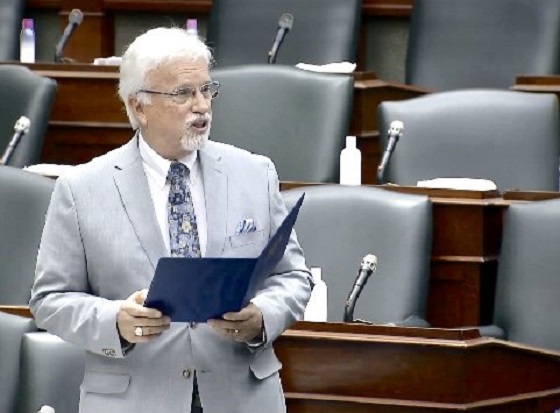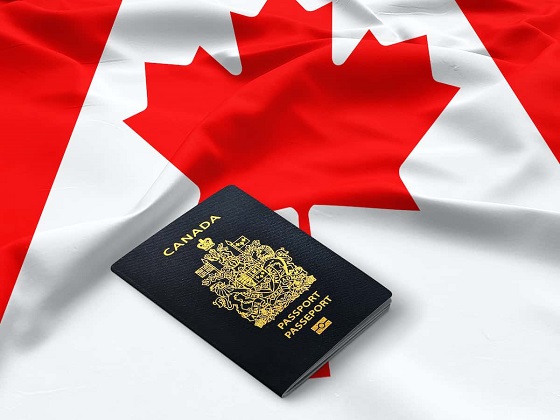Censorship Industrial Complex
JK Rowling dares Scottish police to arrest her over new ‘hate crime’ law threatening free speech

From LifeSiteNews
‘If what I’ve written here qualifies as an offence under the terms of the new act, I look forward to being arrested when I return to the birthplace of the Scottish Enlightenment,’ the ‘Harry Potter’ creator said.
Harry Potter creator J.K. Rowling is striking a defiant tone in the face of a new Scottish law that many fear will effectively criminalize free speech on subjects such as biological sex and “gender identity.”
The Hate Crime and Public Order (Scotland) Act, passed in 2021 but only now taking effect, consolidates various preexisting “hate crime” statutes while also creating a new offense, “threatening or abusive behaviour which is intended to stir up hatred” on the basis of age, disability, religion, sexual orientation, transgender identity, or variations in sex characteristics.
As covered by The Guardian and The Scotsman, various individuals and groups have raised objections to the law, including MP Joanna Cherry, who predicts it “will be weaponized by trans rights activists to try to silence, and worse still criminalize, women who do not share their beliefs”; said the Scottish Family Party, who says it will mean the “death” of free speech; and the Association of Scottish Police Superintendents and Scottish Police Federation, who fear it will overtax police forces inadequately trained to handle the influx of new offenses.
Scotland First Minister Humza Yousaf, who championed the law, insists that abuse will be prevented by a “very high threshold” for prosecuting cases and protects freedom of expression in a variety of ways, including a “reasonableness” defense. Ex-Tory MSP Adam Tomkins claims that simply “asserting that sex is a biological fact or that it is not changed just by virtue of the gender by which someone chooses to identify is not and never can be a hate crime under this legislation.”
Such assurances hit a snag, however, when calls to prosecute Rowling under the law prompted Scotland’s Community Safety Minister Siobhian Brown to walk back her initial assurances that “misgendering” would “not at all” violate the law, The Telegraph reported. “It could be reported and it could be investigated,” she said, “whether or not the police would think it was criminal is up to Police Scotland for that.”
On Monday, Rowling shared a lengthy Twitter/X thread of examples of “trans women” (i.e., men) and pro-LGBT activists she suggested were now a “protected category” despite their violent, abusive acts and/or hateful behavior, using the hashtag #ArrestMe to effectively dare the authorities to persecute her.
“The new legislation is wide open to abuse by activists who wish to silence those of us speaking out about the dangers of eliminating women’s and girls’ single-sex spaces, the nonsense made of crime data if violent and sexual assaults committed by men are recorded as female crimes, the grotesque unfairness of allowing males to compete in female sports, the injustice of women’s jobs, honours and opportunities being taken by trans-identified men, and the reality and immutability of biological sex,” she wrote. “For several years now, Scottish women have been pressured by their government and members of the police force to deny the evidence of their eyes and ears, repudiate biological facts and embrace a neo-religious concept of gender that is unprovable and untestable.”
“I’m currently out of the country, but if what I’ve written here qualifies as an offence under the terms of the new act, I look forward to being arrested when I return to the birthplace of the Scottish Enlightenment,” Rowling added.
Scotland's Hate Crime Act comes into effect today. Women gain no additional protections, of course, but well-known trans activist Beth Douglas, darling of prominent Scottish politicians, falls within a protected category. Phew! 1/11 pic.twitter.com/gCKGwdjr5m
— J.K. Rowling (@jk_rowling) April 1, 2024
Fragile flower Katie Dolatowski, 6'5", was rightly sent to a women's prison in Scotland after conviction. This ensured she was protected from violent, predatory men (unlike the 10-year-old girl Katie sexually assaulted in a women's public bathroom.) 3/11 pic.twitter.com/13J5XfRo3a
— J.K. Rowling (@jk_rowling) April 1, 2024
Scottish woman and butcher Amy George abducted an 11-year-old girl while dressed in female clothing. No idea why this was mentioned in court – of course she was wearing women’s clothing, she's a woman! Amy took the girl home and sexually abused her over a 27-hour period. 5/11 pic.twitter.com/xy3DmnqZrc
— J.K. Rowling (@jk_rowling) April 1, 2024
Mridul Wadhwa, head of a Scottish rape crisis centre, says, ‘sexual violence happens to bigoted people as well.’ She has no gender recognition certificate, but was still appointed to a job advertised for women only. Time to be ‘challenged on your prejudices’, rape victims! 7/11 pic.twitter.com/YfxUhbh6cw
— J.K. Rowling (@jk_rowling) April 1, 2024
Katie Neeves has been appointed as the UN Women UK delegate. She switched from straight man to lesbian at the age of 48 and, in a leaked 2022 webinar, described how she used to enjoy stealing and wearing her sister’s underwear. A truly relatable representative! 9/11 pic.twitter.com/VKzF7IuJTU
— J.K. Rowling (@jk_rowling) April 1, 2024
🎉🌼🌸April Fools! 🌸🌼🎉
Only kidding. Obviously, the people mentioned in the above tweets aren't women at all, but men, every last one of them.
In passing the Scottish Hate Crime Act, Scottish lawmakers seem to have placed higher value on the feelings of men performing their…
— J.K. Rowling (@jk_rowling) April 1, 2024
Rowling, whose Potter novels are the best-selling book series in the world, has long been known as a doctrinaire liberal on most issues, in 2007 going so far as to retroactively add a same-sex relationship to the backstory of Harry’s mentor Albus Dumbledore, despite the character’s sexual attraction not being referenced in the books themselves or their film adaptations (until briefly being alluded to in the third film of the Fantastic Beasts spinoff series).
Even so, Rowling has been deemed a bigot by pro-LGBT activists for refusing to go along with the notions that gender is a social construct that may be changed at will, or that life-altering surgical or chemical “transition” procedures are appropriate for confused minors. In recent years, despite intense cultural pressure, she has only grown bolder in opposing the transgender lobby’s detrimental impacts on children as well as actual women.
Censorship Industrial Complex
Jordan Peterson, Canadian lawyer warn of ‘totalitarian’ impact of Trudeau’s ‘Online Harms’ bill

From LifeSiteNews
“You don’t even know who it is… you can be accused regardless of your intent, regardless of the factual [reality], or [the] reality of your utterance, by people who do not have to identify themselves or take any responsibility whatsoever if their denunciation turns out to be false,”
In a recent podcast episode, well-known Canadian psychologist Jordan Peterson and Queen’s University law professor Bruce Pardy blasted Prime Minister Justin Trudeau and his government over Bill C-63, the Online Harms Act, a proposed piece of legislation which, if passed, could lead to large fines and even jail time for vaguely defined online “hate speech” infractions.
“Recently, the Trudeau woke mob has managed to extend themselves even further into the legal nether lands with a new bill called C-63, which isn’t law in Canada yet, but is soon likely to be, and it is the most totalitarian Western bill I’ve ever seen by quite a large margin and in multiple dimensions,” said Peterson in a recent Everything You Need to Know video podcast dated April 14, which was posted on his YouTube channel.
“And that was my conclusion, upon reading it and then my conclusion, upon rereading it and rereading it again, because I like to make sure I have these things right.”
Joining Peterson was Canadian lawyer Bruce Pardy and podcaster Konstantin Kisin. Pardy serves as executive director of Rights Probe, a law and liberty thinktank, and professor of law at Queen’s University in Kingston, Ontario. As for Kisin, he is a Russian-British satirist, social commentator, who serves as co-host of the TRIGGERnometry YouTube show.
Peterson noted that in his view, Bill C-63 is “designed… to produce a more general regime for online policing.”
“To me, that’s what it looks like,” he said.
The trio spent the better part of two hours discussing Bill C-63, which was introduced by Justice Minister Arif Virani in the House of Commons in February and was immediately blasted by constitutional experts as troublesome.
Among other things, the bill calls for the creation of a Digital Safety Commission, a digital safety ombudsperson, and the Digital Safety Office, all tasked with policing internet content, including already illegal internet content such as child exploitation material.
However, the bill also seeks to police “hate” speech online with broad definitions, severe penalties, and dubious tactics.
Details of the new legislation to regulate the internet show the bill could lead to more people jailed for life for “hate crimes” or fined $50,000 and jailed for posts that the government defines as “hate speech” based on gender, race, or other categories.
Right at the start of the interview, Peterson noted that when thinking about Bill C-63, he thought of it as a “real masterpiece of right thinking, utopian, resentful foolishness.”
Due to the fact that the bill allows for accusations to be filed by anyone, and that there is no obligation for the government to reveal the name of the accuser to the accused, Peterson warned that Bill C-63 could see widespread corruption by individuals acting in bad faith.
“You don’t even know who it is… you can be accused regardless of your intent, regardless of the factual [reality], or [the] reality of your utterance, by people who do not have to identify themselves or take any responsibility whatsoever if their denunciation turns out to be false,” he warned.
Pardy chimed in to say that when it comes to Bill C-63, Canadians “don’t even know what the rules are going to be.”
“Basically, it just gives the whole control of the thing to our government agency, to the bureaucrats, to do as they think,” he said.
Regarding Pardy’s remarks, Peterson observed that the Trudeau government is effectively “establishing an entirely new bureaucracy” with an “unspecified range of power with non-specific purview that purports to protect children from online exploitation” but has the possibility of turning itself into an internet “policing state.”
Bill uses protecting kids as ‘cover,’ will have a ‘chilling effect upon speech’
Pardy told Peterson that one of the main issues with C-63, in his view, is that it “starts with the cover of protecting children… from online harm,” but that beneath this “great cover” it “enables” a crackdown on the “very idea of free speech.”
Pardy warned that Bill C-63 will see the return of an “old” Human Rights Act provision, titled Section 13, that was repealed by the Conservative government of Prime Minister Stephen Harper in 2013 after it was found to have violated the right to free expression.
“One of the problems with the human rights regime is that complaints can be made very, very easily without a lawyer, without any cost,” said Pardy. “And because the Canadian federal government has jurisdiction over the internet, this section is going to authorize complaints of all kinds to be made against people who are speaking their minds online…”
Pardy noted that the revival of this type of process will “have a chilling effect upon speech, no question about it,” and it risks ending the “idea of free speech itself.”
Pardy observed that society already has a mechanism to protect kids, despite modern society’s idea that the “government is responsible for keeping people safe.”
“That’s ignoring the best mechanism we already have to keep children safe, which is their parents, right. It’s assuming that this is what this state is for if you went up to somebody on the street, anybody at random,” he said.
“We’ve lost the proposition that we’ve made a choice to have this large overwhelming government tell us what to do in place of all of the other things we used to have.”
Speaking further, Pardy observed that what laws like Bill C-63, and many other laws already passed by the Trudeau Liberals such as Bill C-16, are attempting to do, is change the way people perceive how laws should be enforced.
“The ethos of managerialism has supplanted the rule of law as the basic idea instead of the rule of law,” said the law professor.
“We have rule by law now, which means that the law is nothing more than a tool for the government to use to create a law on a whim,” he continued, adding that this is “not the way the Western legal system used to work.”
Criminalizing ‘hateful’ speech is ‘troublesome’ if bureaucrats decide what is ‘hateful’
In a recent opinion piece critical of Bill C-63, law professor Dr. Michael Geist said that the text of the bill is “unmistakable” in how it will affect Canadians’ online freedoms.
Geist noted that the new bill will allow a new digital safety commission to conduct “secret commission hearings” against those found to have violated the law.
“The poorly conceived Digital Safety Commission lacks even basic rules of evidence, can conduct secret hearings, and has been granted an astonishing array of powers with limited oversight. This isn’t a fabrication,” Geist wrote.
He observed specifically how Section 87 of the bill “literally” says “the Commission is not bound by any legal or technical rules of evidence.”
Peterson noted that giving “hate speech” such prominence and such a broad definition is “troublesome” as it will be up to bureaucrats to decide what is “hateful.”
“The whole notion of hateful speech, that’s troublesome. One, for me, because there’s an obvious element of subjective judgment in it,” he said, questioning who gets to decide what is “hateful” and on what “grounds” do they have the authority to make such a judgement.
Peterson warned that if Canada decides to “open the door” of tasking bureaucrats with determining what is or isn’t “hateful” speech, and if it blocks transparency on who is making accusations of hate, it “leads us to anonymous denunciation,” which he sees as dangerous because it fails to hold complainants accountable.
To make his point, Peterson said that “everybody, including every school child who’s like older than three, and maybe even three,” understands that there’s almost “nothing worse than a snitch, and all children are wise enough to know that.”
“Even if you are being bullied at school, let’s say, it has to get pretty damn brutal and bad before going to report it to the authorities is acceptable or justifiable,” he said.
“Now you know you can debate about the conditions under which that should or shouldn’t occur. My point is that even kids know that.”
Geist has noted that when it comes to Bill C-63, the “most obvious solution” to amend the bill “is to cut out the Criminal Code and Human Rights Act provisions, which have nothing to do with establishing internet platform liability for online harms.”
Giving historcal examples for why Bill C-63 worries him, Peterson explained that “we certainly know from places like the Soviet Union, just exactly what happens, or East Germany, what happens when one-third of the citizens, which was the case in East Germany, become government informers.”
“…Trust is gone. The worst people have the upper hand. It’s a complete catastrophe… Now in Bill C-63, you have a concatenation of these problems… now you know hate speech is going to be constrained and it can be identified by anonymous informants,” forecasted the psychologist.
Indeed, it is not just Peterson, Pardy and Geist who are warning of Bill C-63, but major law groups as well.
The Justice Centre for Constitutional Freedoms (JCCF) has said Bill C-63 is “the most serious threat to free expression in Canada in generations. This terrible federal legislation, Bill C -63, would empower the Canadian Human Rights Commission to prosecute Canadians over non-criminal hate speech.”
JCCF president John Carpay recently hand-delivered a petition with 55,000-plus signatures to Canada’s Minister of Justice and all MPs, urging them to reconsider their sponsoring of the law.
Censorship Industrial Complex
Australian politicians attack Elon Musk for refusing to remove video of Orthodox bishop’s stabbing

Photo by Leon Neal/Getty Images
From LifeSiteNews
By David James
The video is available on YouTube but Australia’s political class is singling out and waging war on X owner Elon Musk for his refusal to delete footage of the stabbing of Orthodox Bishop Mar Mari Emmanuel.
In a demonstration of governmental overreach the Australian prime minister, Anthony Albanese, has attacked Elon Musk, the owner of X (formerly Twitter) for not acceding to demands to put a worldwide ban on video footage of an attempted stabbing of a bishop in a Sydney church.
Albanese is not alone; virtually the entire Australian political class has joined in the attack. Tanya Plibersek, minister for Environment and Water called Musk an “egotistical billionaire.” Greens senator Sarah Hanson-Young described him as a “narcissistic cowboy.” Albanese chimed in by describing him as an “arrogant billionaire who thinks he’s above the law.”
Senator Jacqui Lambie went as far as suggesting that Musk be “jailed” for his refusal to bend to the demands of the Australian government.
In response to Lambie’s comments, Musk declared her to be an “enemy of the people of Australia,” agreeing with another social media user who suggested it should be Lambie, not Musk, who belongs in jail.
This Australian Senator should be in jail for censoring free speech on X. https://t.co/vnYvBjpXav
— Rothmus 🏴 (@Rothmus) April 23, 2024
The right wing Liberal-National coalition was only slightly less aggressive saying Musk was offering an “insulting and offensive argument” in his refusal to remove graphic footage of the stabbing. How Musk saying that posts should not be taken down is “insulting and offensive” was not explained.
The victim of the attack, Bishop Mar Mari Emmanuel, an Iraqi-born Assyrian Australian prelate who is head of the Eastern Christ the Good Shepherd Church, has displayed a maturity and moral virtue conspicuously lacking in the political arena. Emmanuel recorded a message saying that he loved his assailant, and that he wanted the video to stay online, urging people not to respond to violence with violence.
After the incident there were riots outside the church, resulting in 51 officers sustaining injuries. A 16-year-old boy has been arrested and charged with a religiously motivated terrorist attack.
The court battle between the Australian government and Musk is being characterised as a contest between free speech and the government’s role in protecting people. Certainly for Musk it is very much about protecting free speech.
That formulation is inaccurate. There is no effective protection of free speech in Australia, unlike the US, which has the First Amendment of the Constitution. The Federal government is currently preparing a misinformation and disinformation bill to force social media companies only to allow content of which the government approves.
As Senator Ralph Babet of the United Australia Party observes it is a “censorship agenda” that will be pushed no matter which party is in power. “The office of the eSafety commissioner was created under the Liberal Party and is now being emboldened by the Labor Party,” he writes.
The public battle with Musk is better seen as an attempt by the Australian government to control what is on the internet. The newly appointed eSafety commissioner, Julie Inman-Grant directed X to remove the posts, but X had only blocked them from access in Australia pending a legal challenge. The government then demanded that the posts be removed world-wide.
That the Australian political class thinks it has the right to issue edicts in countries where it has no legal jurisdiction is a demonstration of the lack of clarity in their thinking, and the intensity of their obsession with censoring.
Musk accurately characterised the situation in a post: “Should the eSafety Commissar (an unelected official) in Australia have authority over all countries on Earth?” It seems that many Australian politicians think the answer to that question is “Yes.”
The childish personal attacks on Musk, typical ad hominem attacks (going at the person rather than the argument) are revealing. What does the fact that Musk is a billionaire have to do with the legal status of the posts? Does having a lot of money somehow disqualify him from having a position?
If he is “egotistical” or “arrogant” what does that have to do with his logical or legal claims? How does exposing Musk as a narcissistic cowboy” have any relevance to him allowing content on the platform? Wouldn’t a narcissist be more likely to restrict content? The suspicion is that the politicians are resorting to such abuse because they have no argument.
The Australian government’s attack on Musk, which borders on the absurd, is just one of many being directed at X. An especially dangerous initiative is coming from the European Union’s Digital Services Act, which can apply fines of up to 6 per cent of the worldwide annual turnover, a ridiculously punitive amount. The United Kingdom’s communications regulator, Ofcom is even worse. It will have powers to fine companies up to 10 per cent of their global turnover.
Western governments are mounting an all out push to censor the internet, and Australia’s aggressive move is just part of that. What is never considered by governments and bureaucrats is the cost of such censorship.
The benefits of “protecting” people are always overstated and inevitably infantilize the population. The price is a degradation of social institutions and a legal system that does not apply equally to the citizenry and to the government. It is a step towards tyranny: rule by law rather than rule of law.
-

 Alberta12 hours ago
Alberta12 hours agoCanada’s postal service refuses to help with Trudeau’s gun ban buyback program: report
-

 COVID-1911 hours ago
COVID-1911 hours agoPeckford: Hallelujah! Supreme Court of Canada to hear Newfoundland and Labrador charter case
-

 Business19 hours ago
Business19 hours agoOttawa’s capital gains tax hike—final nail in ‘business investment’ coffin
-

 Automotive19 hours ago
Automotive19 hours agoCanadian interest in electric vehicles falls for second year in a row: survey
-

 COVID-1912 hours ago
COVID-1912 hours agoFormer Canadian lawmaker has no regrets about refusing COVID shot despite losing his job
-

 Frontier Centre for Public Policy2 days ago
Frontier Centre for Public Policy2 days agoHow much do today’s immigrants help Canada?
-

 Fraser Institute1 day ago
Fraser Institute1 day agoFederal government’s fiscal record—one for the history books
-

 Alberta1 day ago
Alberta1 day agoPrincipal at Calgary Elementary School charged with possession of child pornography







